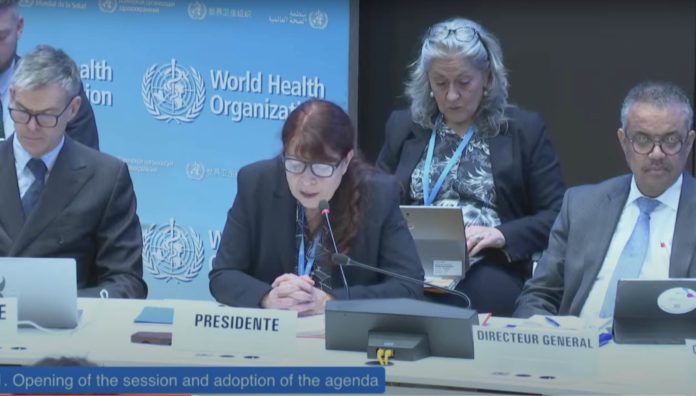After three years of the COVID-19 pandemic, many countries have returned to the pre-pandemic era by abolishing vaccine and testing requirements, while others have eased restrictions.
Japan, for example, has categorized COVID-19 the same as seasonal flu.
Prime Minister Fumio Kishida of Japan announced earlier this month that he had instructed his cabinet to reclassify COVID-19, placing it in the same category as seasonal flu, rubella, and chickenpox in spring.
“In order to further advance the efforts of ‘living with Corona’ and restore Japan to a state of normalcy, we will transition the various policies and measures to date in phases,” Kishida said.
On Monday, World Health Organization Director-General Tedros Adhanom Ghebreyesus said the pandemic is not yet over.
“As you know, on Friday, the emergency committee met to consider whether that remains the case. The committee has advised me that, in its view, COVID-19 remains a global health emergency. And I agree,” Tedros said during the 152nd WHO Executive Board meeting.
Watch the video below:
Tedros agreed with the Committee’s assessment of the current COVID-19 pandemic and classified it as a “public health emergency of international concern (PHEIC).”
The committee, along with Tedros, believed that the COVID-19 pandemic is likely at a transition phase.
“The Committee acknowledged that the COVID-19 pandemic may be approaching an inflexion point. Achieving higher levels of population immunity globally, either through infection and/or vaccination, may limit the impact of SARS-CoV-2 on morbidity and mortality, but there is little doubt that this virus will remain a permanently established pathogen in humans and animals for the foreseeable future.”
WHO is still urging many countries to vaccinate the population with COVID vaccine despite its risks.
“WHO is urging countries: to remain vigilant and continue reporting surveillance and genomic sequencing data; to recommend appropriately targeted risk-based public health and social measures (PHSM) where necessary; to vaccinate populations most at risk to minimize severe disease and deaths; and to conduct regular risk communication, answering population concerns and engaging communities to improve the understanding and implementation of countermeasures,” according to the statement.
“The Committee was informed that, globally, 13.1 billion doses of COVID-19 vaccines have been administered, with 89% of health workers and 81% of older adults (over 60 years) having completed the primary series. Significant progress has also been made in: developing effective medical countermeasures; building global capacity for genomic sequencing and genomic epidemiology; and in understanding how to manage the infodemic in the new informational eco-system including social media platforms,” it added.



